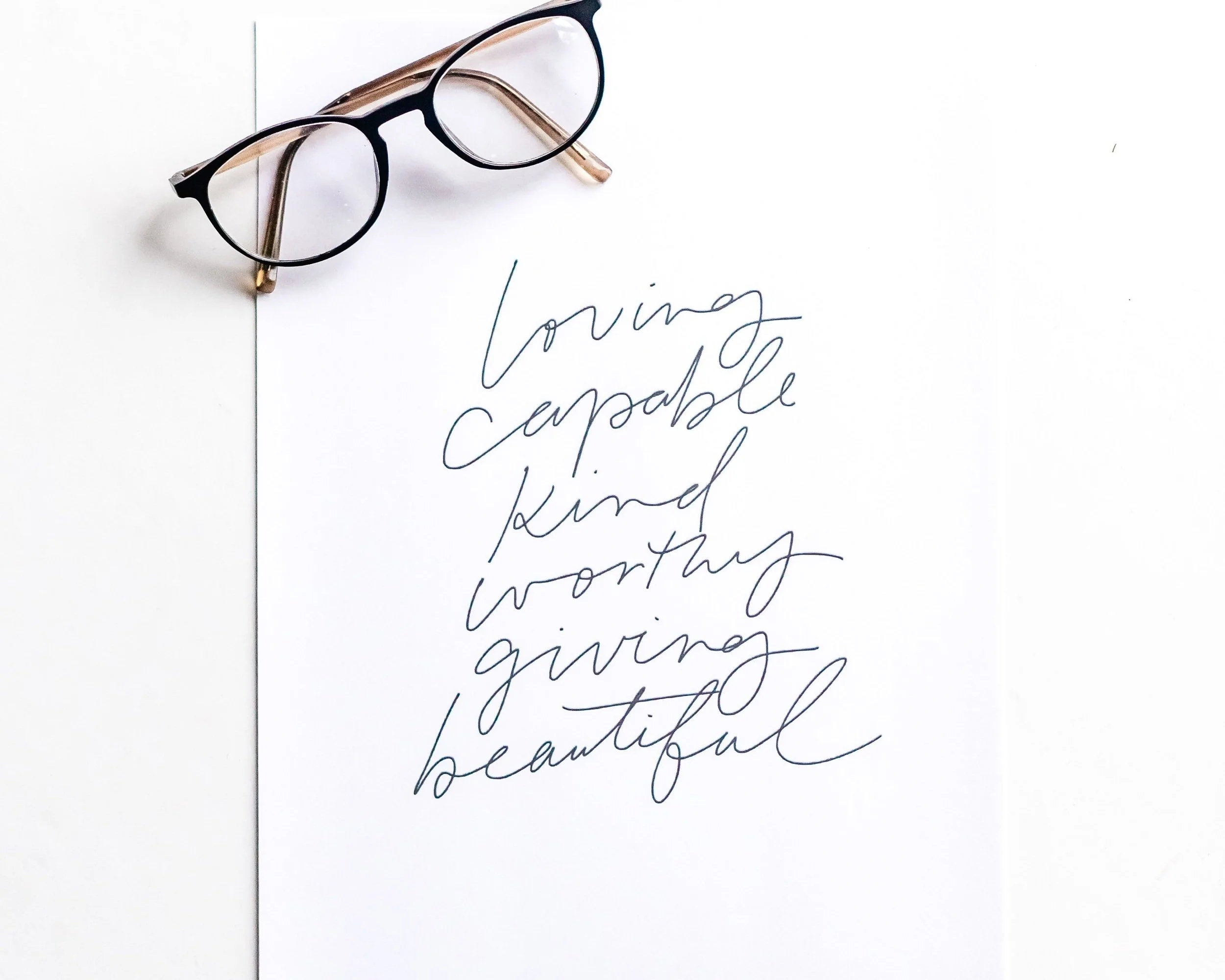What do you believe about yourself that just isn’t true?
I created a story about myself when I was young. Although it’s a fictional story, I believe it. And that story is that I am not worthy. I had a pivotal moment recently where my story crept up on me quite unexpectedly. It was right in the middle of a leadership retreat, the purpose of which is to find your inner coach and get clear on a vision for your life and leadership. It brought to light that I am still hanging onto my story and that my belief that I am not worthy still makes a profound impact on how I am living my life.
If, as I do, you believe that the universe will provide, it became apparent that I was there to discover this. Although it was a painful realization, I was grateful for it. Discovering the source and gaining a new perspective on this belief is my critical next step. It will help guide my life, my leadership, and my coaching practice.
I venture to say that most of us have beliefs about ourselves that are not true and limit us. “Not being worthy” is up there on the list whether it be worthy of love, success, happiness, or friendship. Whatever your truth is, it can manifest itself in all sorts of ways. You get in your own way. You don’t negotiate the salary you deserve. You don’t ask for a promotion. You don’t tell your friend or partner that you don’t like how they are treating you or that you just need to talk and you want them to just listen.
Taking stock of your negative belief(s) about yourself, known as limiting beliefs, involves self-reflection and introspection. A great first step is to take an inventory of your beliefs about yourself. Make a list of those beliefs and then next to each one, indicate whether they empower you or limit you. I like this exercise because you are listing everything you believe about yourself including the good which I promise will outnumber the limiting ones. Next, be aware. Every time one of your limiting beliefs creeps in, what triggered it? And then challenge your thoughts. Is it true? You will begin to notice patterns. Are there situations where you consistently doubt yourself? Do you find that you don’t speak up in meetings because you are worried that you might say the wrong thing? Is it difficult to make decisions because you second-guess yourself?
It’s important to remember that exploring your stories and limiting beliefs is an ongoing process. It takes effort. Be kind to yourself and be patient. Get the help you need along the way whether it be a therapist, coach, friend, and/or family member. I can honestly say that the more I explore my limiting beliefs and the more I talk about them with others, the better I feel. My perspective is starting to change and the story I have been telling myself is being rewritten.
If you want to learn more about Core Leadership and upcoming retreats like the one I attended, reach out to Maria Kast on her website.

